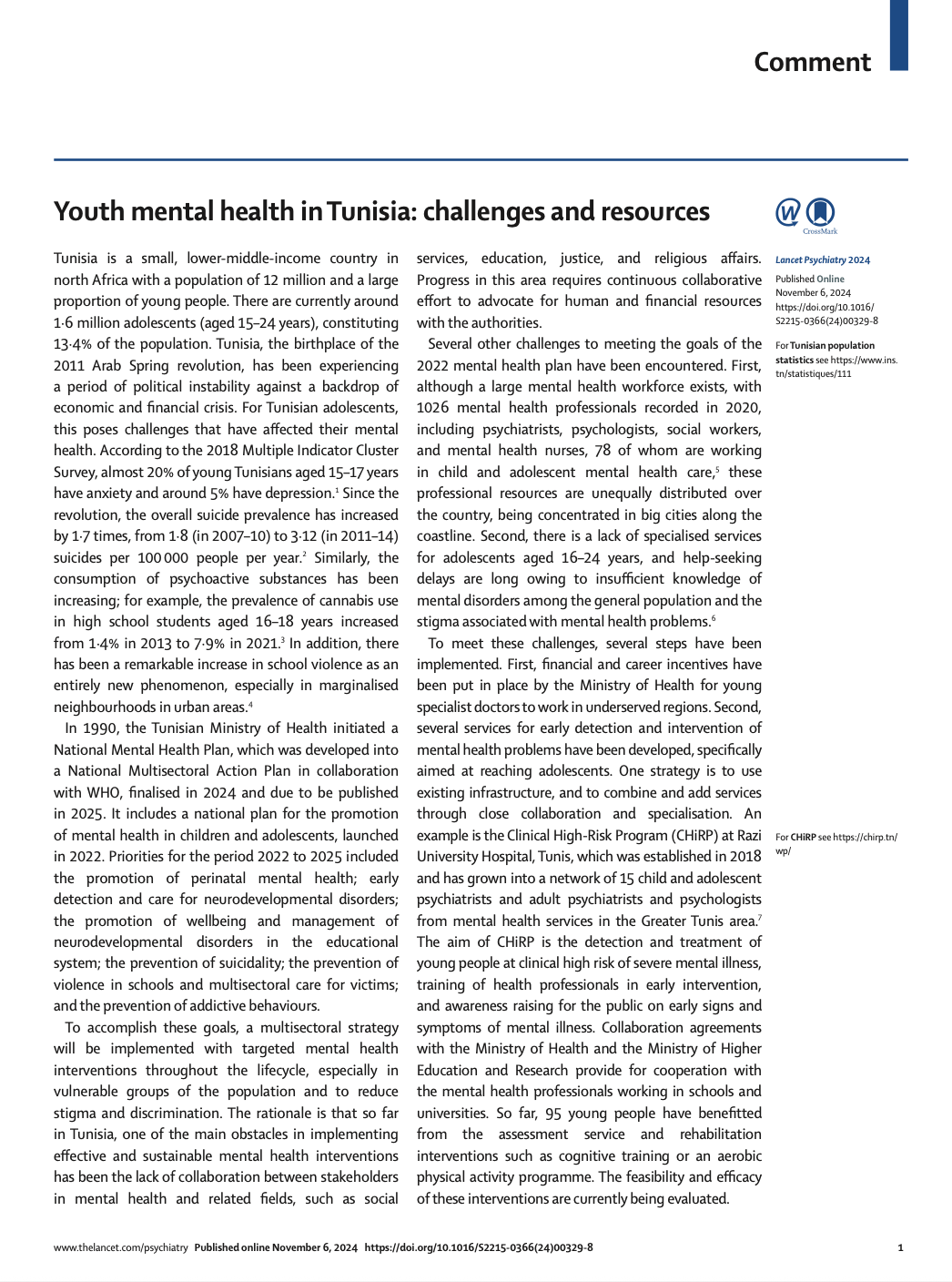
Loading...

Loading...


Tunisia is a small, lower-middle-income country in north Africa with a population of 12 million and a large proportion of young people. There are currently around 1·6 million adolescents (aged 15–24 years), constituting 13·4% of the population. Tunisia, the birthplace of the 2011 Arab Spring revolution, has been experiencing a period of political instability against a backdrop of economic and financial crisis. For Tunisian adolescents, this poses challenges that have affected their mental health. According to the 2018 Multiple Indicator Cluster Survey, almost 20% of young Tunisians aged 15–17 years have anxiety and around 5% have depression.1 Since the revolution, the overall suicide prevalence has increased by 1·7 times, from 1·8 (in 2007–10) to 3·12 (in 2011–14) suicides per 100000 people per year.2 Similarly, the consumption of psychoactive substances has been increasing; for example, the prevalence of cannabis use in high school students aged 16–18 years increased from 1·4% in 2013 to 7·9% in 2021.3 In addition, there has been a remarkable increase in school violence as an entirely new phenomenon, especially in marginalised neighbourhoods in urban areas.4